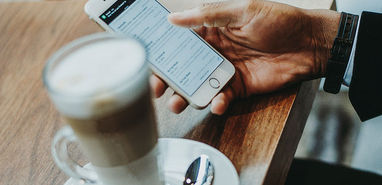
We’ve all been through—or at least know someone who has — telephone behaviour that many of us would consider rude and insulting. From terrible and frustratingly loud ringtones that no one else seems to know aren’t all that catchy to using your phone through dinner (forty percent of British citizens find this unacceptable behaviour).
Or having to listen to that private call on speakerphone when it really should be private, something that irritates about thirty-seven percent of Brits today. Just talking loudly on your phone while you’re in public near others is one of the most annoying things you can do, with almost half (forty-six percent) of all citizens finding it outrageous.
Today’s average Brit despises poor mannerisms, particularly with regard to the modern smartphone. But did all of this really start with these newer phones, or has the problem existed in one form or another for decades?
As you’ll soon discover, telephone etiquette has been a touchy subject since the invention and widespread use of the device, so even though it may seem that today’s generation should shoulder more of the blame, that isn’t necessarily true. Phones and how to speak properly when using them always came with a set of guidelines. This research comes to you courtesy of Carphone Warehouse.
1900’s
With the advent of the first telephone lines in Britain, an operator would need to connect you to the person with whom you wished to speak. This could actually take up to twenty minutes, so if you really needed to talk to someone, patience was a virtue in those days.
In fact, it was not at all uncommon for operators to cut the call as soon as they’d managed to get through to the other party. Brits of that era found the devices so bothersome that they chose to blame them for an increased use of profanity. Phone companies learned of this and so issued a special request of their customers to be courteous when on the line.
1930’s
In the 1930’s, not only did Brits have to suffer through the long wait times related to connecting calls, they had to wait in lines to use the phones themselves. Line access during this era was locally shared on what was known as a party line and each individual could only place one call at a time.
Companies recommended that everyone make their calls brief for the sake of those waiting behind them—so much so that printed phone books asked callers to skip saying a quick “hullo” and go straight into who they were and why they were calling. To add to the drama, line sharing meant that others might be listening in, which was a concern for everyone during wartime, as you can imagine.
1960’s
In the 1960s, only about a quarter of Britain’s population owned their own home phones. And even for those that had one, renting a line was not exactly affordable at about a hundred pounds per year. As such, most regular folks opted to use public payphones whenever they needed to make the occasional call.
For some, even owning their own phone was more a drudgery than a modern convenience. As a relative deluge of calls throughout the day or evening became an issue, people learned little tricks to get rid of unwanted callers quickly.
1980’s
When the eighties hit, you started to see those weirdly big mobile phones that are so much fun to have a go at when we catch them in films of the era. They were not exactly affordable, costing several thousand pounds each for purchase and upkeep. Because of this, they were often seen as trophies of affluence rather than objects of need or convenience.
After all, you still needed battery packs and two hands for these phones, not to mention the extras for car phones. Mobile etiquette took a backseat, so-to-speak, to being able to just show others your hip new phone.
Here and Now
When mobile phones first truly became mobile, it was an era rife with new fears real and imagined. Adverts and even some peer-reviewed journals initially warned us that using our phones too much would fry our brains, just like newfangled computers or microwave ovens. None of these warnings stopped the mobile phone boom in Britain though.
By 2011, more Brits were using mobile devices than they had landlines and over seventy percent of adults today have a smartphone. Mobiles pack all the convenience of an internet browser, camera, and hub for catching up with news and friends, all in one portable device. And we can even make the occasional phone call if we need to do so.
If you’re starting to feel guilty of texting in the company of friends or whipping out a selfie stick in a crowd of strangers for that perfect shot, it’s not really technology’s fault. Just try some common courtesy, mobile-style.








By Andrej Kovacevic
Updated on 4th February 2020